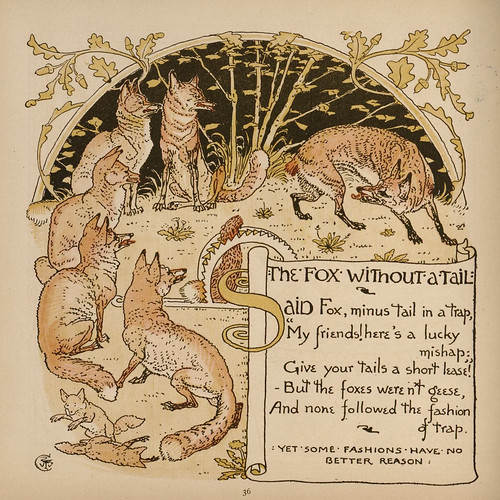Here is a round-up of today's blog posts - and for previous posts, check out the Bestiaria Latina Blog archives. I'm using Google+ a lot these days - are there any of you I should look for there?
HODIE: ante diem tertium decimum Kalendas Ianuarias.
GAUDIUM MUNDO: Here are some Latin holiday songs for you to enjoy - O Hanukkah (a song for the beginning of Hanukkah), Quem Pastores Laudavere (a 14th-century latin carol, often called "Quempas"), and Tres Naves (a Latin version of the English carol "I Saw Three Ships").
Myths & Legends: The art image for today's legend shows Zeus and his lover Semele, who was the mother of the god Dionysus; you can also see the legends for the current week listed together here.
OWEN'S EPIGRAMS: The two new Owen epigrams, with Harvey's English versions, are Homo Homini Deus, Est homo, qui locuples inopi nil donat amico. / Qui rapit, hic lupus est. Qui dabit, ille deus; and Vicissitudo, Gaudia post luctus veniunt, post gaudia luctus. / Semper in ambiguo (speve metuve) sumus. (They each come a vocabulary list!)
CAMERARIUS'S EMBLEMS: The two new emblems are Bene Qui Latuit, Exemplo domiporta tibi fit cochlea, quisquis / Exoptas tuto consenuisse domi; and Brevis Et Damnosa Voluntas, Qui circum volitat deceptus amores ad ignes, / Numquid naturam papilionis habet? (These have vocabulary too!)
VERBUM WIDGET: The word from the daily widget is TANTUS - which also has a brief essay at the Verbosum blog. Here's one of the sayings you can find in that essay: Quantum potes, tantum aude, "Dare to do as much as you can!"
GOOGLE BOOKS: Today's Google Books are Vaillant's Fasti Sacri and Gilbertus' Tetrastichorum in Fabulas Aesopicas XII .
TODAY'S FABLES & STORIES:
ANECDOTE OF THE DAY: Today's anecdote is Stabula Augeae, the story of how Heracles cleaned out the stables of King Augeas.
FABULAE FACILES: The NEW easy-to-read fable is Vulpes Sine Cauda, a story about the tyranny of fashion (and the fable comes with a vocabulary list).
FABULAE FACILES WIDGET: The fable from the Fabulae Faciles widget is Simiae Saltantes, the story of the King of Egypt and his dancing monkeys.
MILLE FABULAE: The "chunk" of Mille Fabulae et Una today is Fable 191 through Fable 200, including Mures Duo, the famous story of the city mouse and the country mouse.
NEW MILLE FABULAE: The NEW fables with images are Pater Senex Domo Eiectus, a story about an old man, his heartless son and his worldly-wise grandson, and Fur Avarus, a story in which the greedy thief loses everything.
MILLE FABULAE WIDGET: The fable from the Mille Fabulae et Una widget is Mulus et Equus, a story about why it is better to be a humble mule than a fancy horse.
AESOP IN ENGLISH VERSE: Today's fable from the English verse widget is The Fly and the Horse, the story of a fly whose boasting does not impress the horses.
TODAY'S MOTTOES & PROVERBS:
3-Word Mottoes: Today's 3-word motto is Tenax propositi, vinco (English: Firm in purpose, I conquer).
3-Word Proverbs: Today's 3-word proverb is Medice, cura teipsum (English: Physician, heal yourself).
Rhyming Proverbs: Today's proverb with rhyme is: Doctrinae cultus spernit nemo, nisi stultus (English: The cultivation of learning is rejected by no one, unless he's a fool).
Vulgate Verse: Today's verse is Sit vestrum est est, non non (James 5:12). For a translation, check out the polyglot Bible, in English, Hebrew, Latin and Greek, at the Sacred Texts Archive online.
Elizabethan Proverb Commentary: Here is today's proverb commentary, this time by Taverner: Iustitia in se virtutem complectitur omnem: Justice compriseth in it al vertue. He that is a perfect righteous or iust man, without question lacketh no vertue.
Today's image is for that story of the fashionable foxes: 41. Vulpes Sine Cauda. In foveam incidit vulpecula et inde, cauda detruncata, occurrit multis vulpeculis. Quas cum indignabunde conspexerat, inquit, “Fraterculi, quo vaditis?” “Ad leonis basilicam eundum est nobis,” respondebant. “Ad leonis basilicam?” inquit vulpes. “Profecto, ego ab ea nuperrime redii, et mos iamiam novellus est ut omnes ferae detruncent caudas.” Quibus auditis, illico detruncabant illae suas caudas. Quas cum vidit vulpes, irrisit et consolabatur se socios, si non periculi, saltem pudoris, creavisse. Solamen miseris est socios habuisse doloris. (source - easy version)
